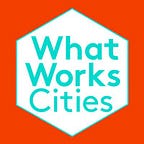What Works Cities Certification: Where We Started—And What’s Next
By Rochelle Haynes and Lauren Su
A decade ago, local government leaders had a data problem: there wasn’t clarity on what it meant to be a ‘local government leader who led with data’. There was no common language around how to best use data and evidence in government decision-making. Instead, there was a patchwork of best practices, lonely local data champions and scattered strategies for how to incorporate data into policy.
Together, Results for America and Bloomberg Philanthropies — two organizations with stakes in the data game — teamed up to find a solution. We wanted to create a standard for local governments to not only evaluate their use of data and evidence, but to celebrate the cities and staff leading the charge and excelling at using data and evidence to inform decisions.
In 2017, What Works Cities Certification was born.
What Works Cities Certification recognizes cities for their exceptional use of data to inform policy decisions, allocate funding, improve services, evaluate the effectiveness of programs and engage residents.
Every three years, we take stock of the What Works Cities program and update it to make sure it reflects data governance best practices. In early 2020, we started this process, working closely with our Standard Committee of experts and partners, as well as engaging the public, to see how we could strengthen the Certification Standard. And then the world changed. The COVID-19 pandemic profoundly impacted everyone, and local governments were no exception.
Specifically, we saw two trends as city governments faced the pandemic:
- COVID-19 immediately accelerated the need for cities to use data to ensure that residents were well informed and services were delivered effectively. Cities that had invested in data-driven infrastructure were better prepared for COVID-19 — and that showed in their crisis response.
- The crisis exposed deep, systemic inequities that for too long were obvious only to the people and communities who experienced their burden.
As we evaluated our criteria, together, these two trends made one issue more urgent than ever: equity. The data showed that equity isn’t an accessory — policies won’t be effective if equity is not embedded in every part of the development, implementation and evaluation process. Strong, prosperous and resilient cities don’t happen by luck — they happen when policies and practices empower entire communities.
Now let’s talk about two big changes we made to Certification and what it means to be a Certified city.
First, we updated the Standard by adding new criteria that embed equity and better reflect the evolving best practices of data governance. We included three core criteria that all cities must meet to be Certified at any level. These are data foundations — such as goal-setting and executive commitment — that must be met for a city to move beyond pockets of excellence to citywide scale, sustainability and resident impact.
Secondly, we’re tying data directly to quality of life. Certification is about making lives better for residents. That’s why we’re now requiring cities to show that they meet an existing standard on at least one of three outcomes: air pollution, the percentage of households with high-speed broadband subscriptions, or a high-priority outcome the city chooses that aligns with the United Nations Sustainable Development Goals and equitably impacts residents. Why these three outcomes? They’re outcomes that affect residents’ daily lives. And making progress on them requires effectively using data and evidence.
With all of this in mind, we are eager to share the next phase of What Works Cities Certification.
Part of this new chapter includes welcoming cities in Canada and Latin America to Certification. There are many cities outside of the U.S. using data and evidence to creatively tackle pressing challenges and we’re excited for them to join us. We also made the Certification Assessment more streamlined and user-friendly. And our new Community Forum provides an opportunity to connect with data-driven peers and offers exclusive access to resources, training and expert coaching.All of these changes reflect what What Works Cities Certification is all about: people. Behind this program is an incredible international network of mayors, city staff, industry experts, nonprofit teams and other data champions.
Here at Results for America, we are lucky to lead a team of passionate, analytical and creative data advocates. And in some ways, our own distinct experiences with What Works Cities embody the moment the program is in: a time in which we’re building on historical success and looking ahead to grow the data movement. Lauren, our Director of Certification, has been at Results for America since the start of What Works Cities Certification. She knows both the 30,000 foot view of the program and the nitty gritty of each of the 43 criteria. Rochelle, our Managing Director, joined in April. She brings a fresh perspective, a valuable focus on equity, and experience working directly in local government.
As we embark on this next phase of What Works Cities we know that this is a pivotal moment for local governments. We want to help you address these challenges because we know that dedicated data-driven local leaders make change. And the updates to Certification recognize that the robust use of data and evidence must underpin the solutions that will make our communities stronger, safer and healthier.
For those of you who are already in the Certification community, we are excited to grow with you. For those who are new to What Works Cities, welcome! We invite you to join us — and hundreds of your peers — to use data to make lives better.
Rochelle Haynes is the Managing Director at What Works Cities.
Lauren Su is the Director of Certification at What Works Cities.
